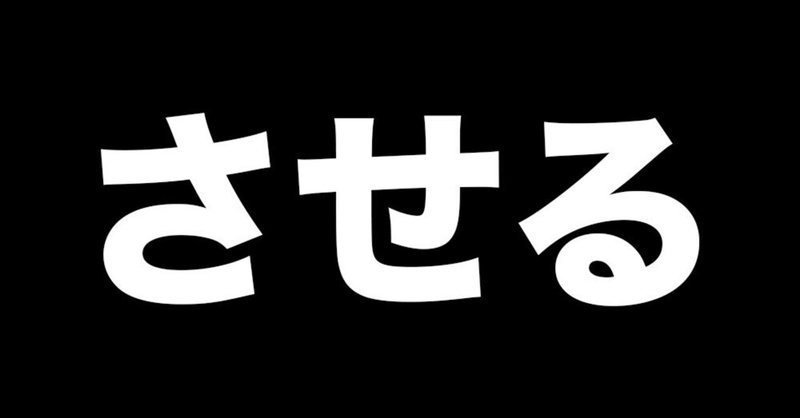
させる
“させる” is used to express making someone do something.
彼は息子に犬の世話をさせた。
彼は息子に犬の世話をさせた。
He made his son take care of the dog.
彼女は娘にピアノを習わさせた。
彼女はむすめにぴあのをならわさせた。
She made her daughter learn the piano.
It can also express allowing someone to do something.
娘が以前から希望していたので、日本に留学させることにしました。
むすめがいぜんからきぼうしていたので、にほんにりゅうがくさせることにしました。
Since my daughter had been hoping for it, I decided to let her study abroad in Japan.
新人への研修も一通り終わったので、簡単な仕事をさせることにした。
しんじんへのけんしゅうもひととおりおわったので、かんたんなしごとをさせることにした。
Since the training for the new employees is over, I decided to let them do some simple tasks.
Furthermore, it can mean making someone experience a certain emotion.
彼は試験に合格して、両親を喜ばせた。
かれはしけんにごうかくして、りょうしんをよろこばせた。
He passed the exam and made his parents happy.
彼女が買い物からなかなか帰ってこなかったので、母親を心配させた。
かのじょがかいものからなかなかかえってこなかったので、ははおやをしんぱいさせた。
Her mother was worried because she didn't come back from shopping for a long time.
Using the form “させてしまった” implies causing an undesirable situation unintentionally. It gives a stronger impression of regret than just “させた”.
道が渋滞していて、ミーティングの相手を1時間も待たせてしまった。
みちがじゅうたいしていて、みーてぃんぐのあいてを1じかんもまたせてしまった。
I unintentionally made the person I was meeting wait for an hour due to traffic congestion.
彼の無神経な発言で、彼女に不快な思いをさせてしまった。
かれのむしんけいなはつげんで、かのじょにふかいなおもいをさせてしまった。
His thoughtless remark unintentionally made her feel uncomfortable.
この記事が気に入ったらサポートをしてみませんか?
